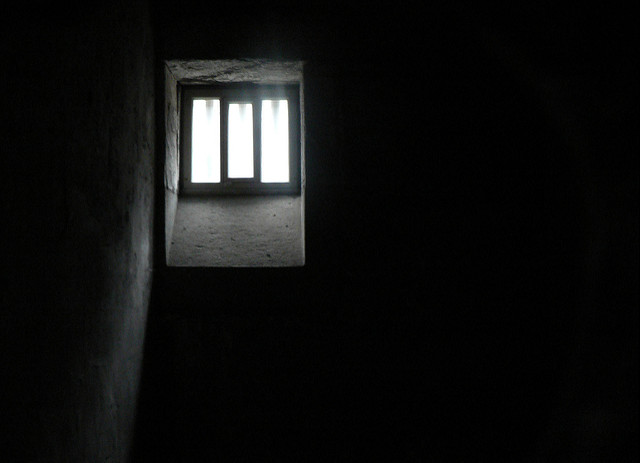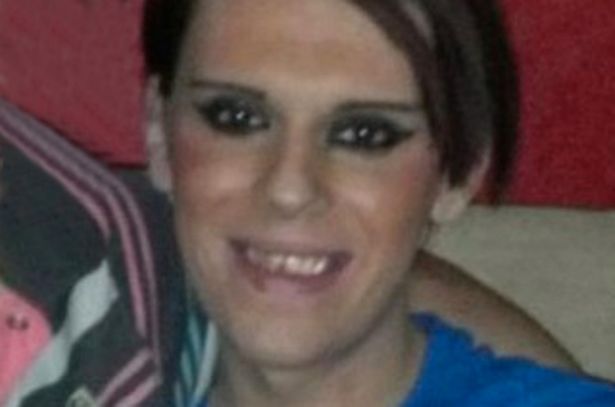The government has rolled back protections for transgender offenders – introduced following the deaths of two trans women inmates – sparking fears they could spend weeks of distress in opposite gender jails.
Transgender prisoners who lack formal legal recognition of their gender identity will be held in prison estates according to the gender they were assigned at birth.
They can be held for up to two weeks under new Ministry of Justice (MoJ) guidelines released on Monday (July 22).
Their case will then be reviewed by a panel who will decide whether they will serve the remainder of their sentence in a male or female estate.
‘Progress Undone’

Speaking at central London panel discussion on Tuesday (July 23), Garden Court Chambers barrister Michelle Brewer told attendees that the new guidelines had “undone the progress” made when they were last updated in 2016.
“Two weeks in a male estate – irrespective of your experience and regardless of how you have lived your life for some time – is a step back. It seems to be a regression,” she said.
The government appears to have “capitulated” to anti-trans campaigners who put forward “the idea that trans women impose an inherent risk to non-trans women,” Ms Brewer said. “It attaches that risk to their trans identity.”
The change in guidance is believed to have come in response to a public outcry following the case of Karen White, who was jailed for life in October last year.
White, a 52-year-old transgender woman, was convicted of sexually assaulting a female inmate in prison as well as raping two other women outside jail.
She began gender realigning while on remand in HMP New Hall White.
The Ministry of Justice (MoJ) apologised for moving her to a women’s prison, saying her offending history – which includes convictions of indecent assault and gross indecency involving women – had not been taken into account.
“But we are talking about a policy that is published by the government that states that the ‘strength and function’ of a prisoners genitals can be looked at as a threat to other prisoners.
“That is a really regressive policy.
“How do you assess the strength and function of some one’s genitalia? Where is the legality in that?”
The new guidelines specifically state that “anatomy, including considerations of physical strength and genitalia” should be considered as potential risk factors to other inmates, among others.
Ms Brewer added that prison governors previously had discretion to transfer trans prisoners without legal recognition to estates of the gender they identify with, but that this power has now been reduced.
“We need to look at this from a human rights perspective,” she said.
The Ministry of Justice writes that its guidelines, known as Prison Service Instructions (PSI), have an “emphasis on adopting a balanced approach”.
This considers the “safety and needs of those who are transgender” while avoiding “any negative impact on the wellbeing and safety of others, particularly in custodial settings such as in women’s prisons”, it says.
Transgender Prison Deaths: Vikki Thompson And Joanne Latham

Vikki Thompson was found dead in her cell in HMP Leeds in 2015. Image Credit: 4WardEver Campaign UK.
Ms Brewer spoke of the cases of Vikki Thompson and Joanne Latham – two trans women who died while on remand in men’s prisons in 2015 – prompting the government to conduct an independent review of its guidance the following year.
Ms Thompson, 21, was found hanged in her cell in HMP Leeds in 2015.
Her partner Robert Steele told an inquest that she said to him in a phone call she wanted to move to a women’s prison. Although, in a statement read out in court her mum Lisa Harrison said she did not mind being in a men’s prison.
Ms Thompson did not have a Gender Recognition Certificate establishing her legal female identity and so was sent to a male prison, the court heard.
Ms Latham, 38, was also found hanged in her cell in HMP Woodhill in December of the same year.
She had been jailed for life in 2001 for attempted murder and later handed further life sentences for the attempted murder of a prisoner in HMP Frankland, Durham, in 2007 and of a fellow patient at a Nottinghamshire hospital in 2011.
The BBC reported that she was in the early stages of changing her gender.
The Samaritans charity is available 24 hours a day to provide confidential support for people who are experiencing feelings of distress, despair or suicidal thoughts. Call 116 123.
EDITOR’S NOTE: Updated 25 July 2019 to include context of the Karen White case and clarification on wording of the 2019 Prison Service Instructions in regards to anatomy.







